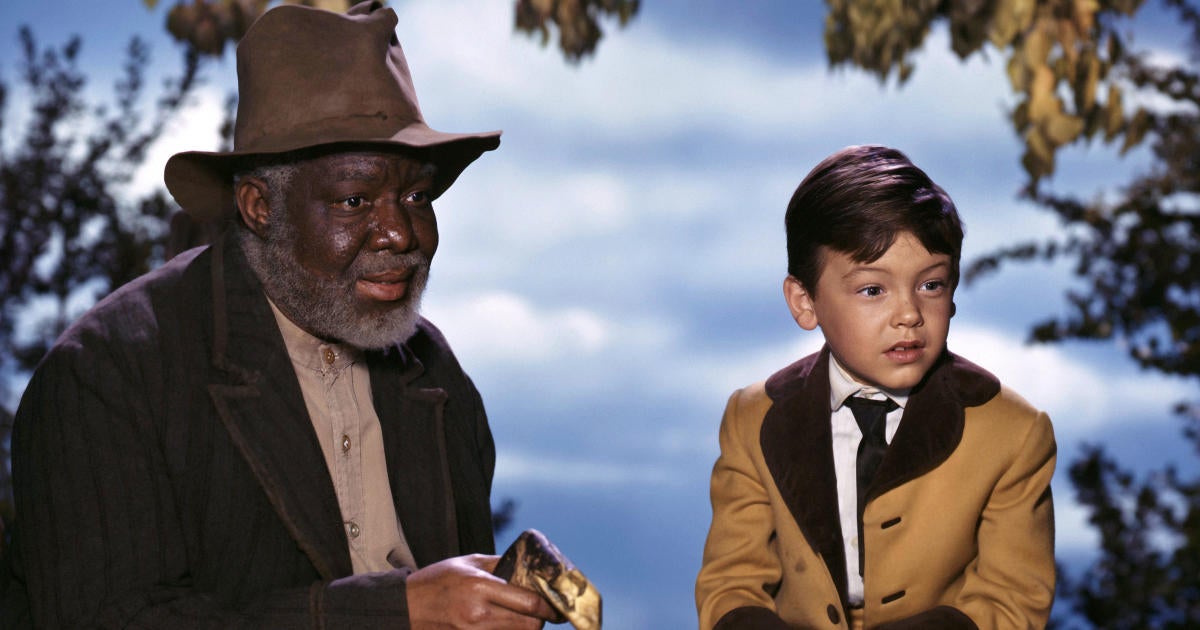
Why Disney’s ‘Song of the South’ Is So Controversial
When the long-running Splash Mountain ride at Walt Disney World closes permanently on Jan. 23, 2023, a part of Song of the South’s legacy will disappear with it. The log flume ride incorporates elements from the animated segments of the film Song of the South, featuring Br’er Rabbit and antagonists Br’er Fox and Br’er Bear, as well as being based on songs and locations from the film. In 2021, Disney Parks announced that the ride would be re-themed as “Tiana’s Bayou Adventure” based on The Princess and the Frog. Throughout the log-flume attraction, original music inspired by songs from the movie will play throughout a scene of the characters as they sail through a Mardi Gras celebration, as depicted in concept art.
Song of the South is set in the American South at the end of the Civil War after slavery was abolished, and despite its mostly forgotten legacy, Disney maintained Splash Mountain since 1989. After a 20,000-signature 2019 Change.org petition emerged, Disney agreed to re-theme Splash Mountain to “remove all traces of this racist movie.” There was a petition to Save Splash Mountain, but it failed to gain momentum.
Additionally, the Festival of Fantasy parade, a regular attraction that returned to the Magic Kingdom on March 9, no longer features the memorable Disney song “Zip-a-Dee-Doo-Dah.” Composed by Allie Wrubel with lyrics by Ray Gilbert, this infectious song won the Academy Award for Best Original Song. Song of the South producer Perce Pearce was already uneasy during the film’s production. A Disney publicist, Vern Caldwell, wrote to Pearce that “the negro situation is a dangerous one. Between the negro haters and the negro lovers there are many chances to run afoul of situations that could run the gamut all the way from the nasty to the controversial.” The NAACP would commend the movie’s visual effects and its combination of animation and live-action but ultimately slammed the film due to its depiction of post-civil war plantation workers. The organization said in a statement that it “regrets, however, that in an effort neither to offend audiences in the North or South, the production helps to perpetuate a dangerously glorified picture of slavery … [the film] unfortunately gives the impression of an idyllic master-slave relationship, which is a distortion of the facts.”
Although the word “slavery” is never mentioned, it’s reasonable to believe Uncle Remus (James Baskett), the affable black man at the center of the narrative, was once an enslaved person on the plantation where he lives. Uncle Remus, the creator of the Br’er Rabbit stories, becomes a father figure and friend to seven-year-old Johnny (Bobby Driscoll), a white boy visiting his grandmother’s plantation as his parents struggle with an untold marital problem. Although Remus’s sensitivity to Johnny surpasses his parents’ indifference and neglect, this compassion implies that men like Remus and the housekeeper Aunt Tempy, played by Hattie McDaniel, are human only to the extent that they serve white characters’ wants and desires. It’s a notion still prevalent in contemporary films. Song of the South contains other examples of racism readily evident: minstrelsy by the animated characters, especially Br’er Fox, slang in the dialogue, a wandering chorus singing traditional black songs, and Br’er Fox and Br’er Bear ensnaring Br’er Rabbit with a tar baby. The film’s most notable blemish is Remus’s narration just before “Zip-a-Dee-Doo-Dah,” in which he muses about how things were “a long time ago” when “every day was mighty satisfactual. “If you’ll excuse me for saying so,” he adds, “’twas better all around.”
However, the movie wasn’t hated by all Black media. While Richard Dier of The Afro-American considered the film “as vicious a piece of propaganda for white supremacy as Hollywood ever produced,” Herman Hill, the first Black basketball player at USC and later an activist and journalist for civil rights, had a more favorable view. In The Pittsburgh Courier, he argued that the film could “prove of inestimable goodwill in the furthering of interracial relations,” characterizing criticisms of the movie as “unadulterated hogwash symptomatic of the unfortunate racial neurosis that seems to be gripping so many of our humorless brethren these days.” Cast members also supported the film. Song of the South features Hattie McDaniel, the first Black entertainer to win an Academy Award for Gone With the Wind. As she told The Criterion in a 1947 interview, “If I had for one moment considered any part of the picture degrading or harmful to my people, I would not have appeared therein.”
0comments
Co-star James Baskett agreed, saying, “I believe that certain groups are doing my race more harm in seeking to create dissension than can ever possibly come out of the Song of the South.” Baskett would receive an honorary Academy Award for his portrayal of Uncle Remus in March 1948 but died later that year due to complications from diabetes. The United States has never seen a Song of the South release on home video. In 2019, Disney CEO Bob Iger said, “it wouldn’t be in the best interest of our shareholders to bring it back, even though there would be some financial gain.” However, overseas there are VHS and LaserDisc releases. In contrast to some Disney+ titles with content warnings, Song of the South will never be available on the platform, even including an “outdated cultural depictions” disclaimer. As the streaming service began to offer classic titles in 2020, Disney CEO Bob Iger addressed the issue during one of Disney’s annual shareholder meetings. When asked about what will and won’t be streaming from the Disney library, Iger replied that the film is not “appropriate in today’s world” and will, therefore, not be re-released.































![iFi's GO Bar Kensei Dongle DAC Supports K2HD Technology With Some Samurai Swagger [Updated] iFi's GO Bar Kensei Dongle DAC Supports K2HD Technology With Some Samurai Swagger [Updated]](https://i0.wp.com/cdn.ecoustics.com/db0/wblob/17BA35E873D594/33FF/45A11/QTXOLJR4xDKSNMMk2WlTgjaIlvSgcYpeU1xJzUwIoYs/ifi-go-bar-kensei.jpg?w=768&ssl=1)
























